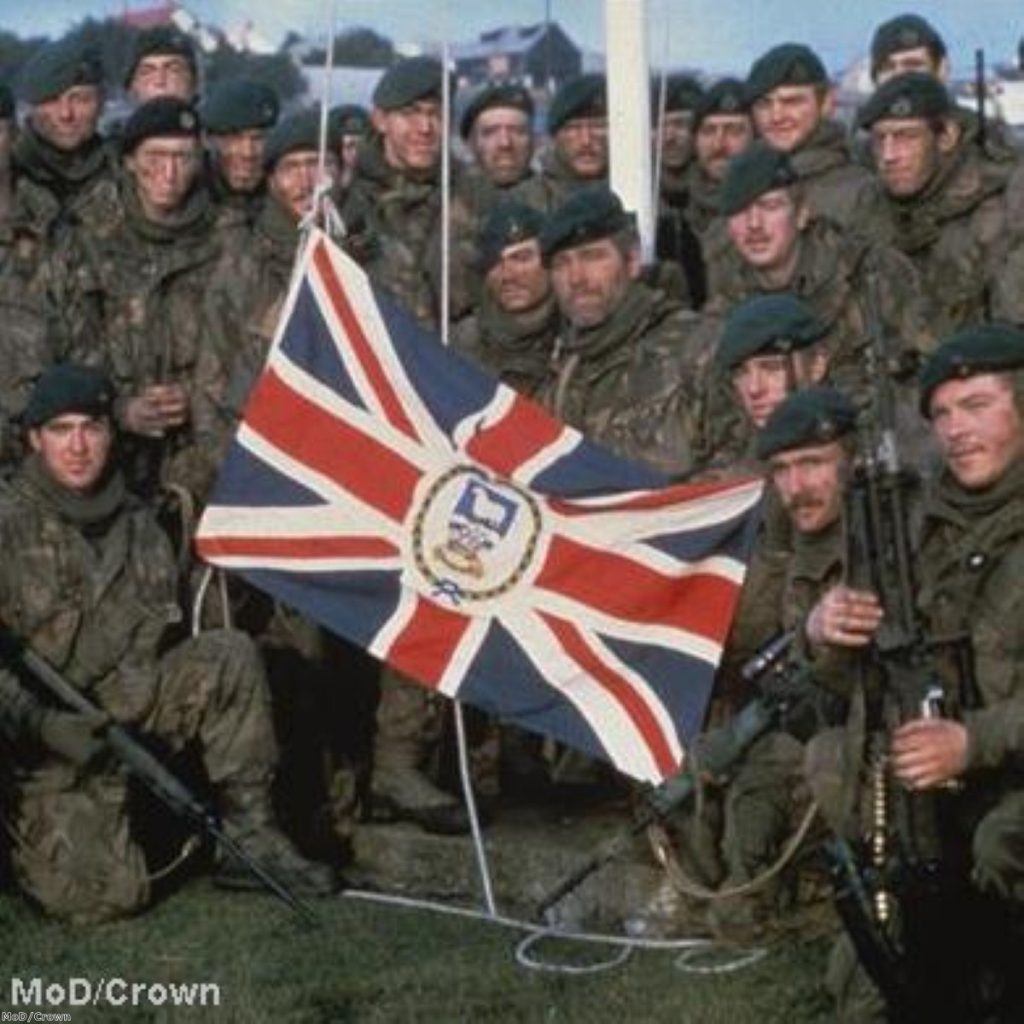Feature: Five ways the Falklands war changed the world
Thirty years ago today, Argentinean troops invaded the Falklands. It was an event with lasting effects on gender politics, Latin American history and British industry.
1) Without the Falklands, Thatcherism would be forgotten
Before the invasion of the Falklands, Margaret Thatcher was on her way out. The Tories had been trailing the SDP-Liberal Alliance in the polls and unemployment was rocketing. No-one expected her to win a second term. But the simplicity of the war – a winnable conflict against a hostile foreign dictatorship – boosted public support for the government. In the euphoria which followed the victory, the Tories returned to the top of the opinion polls and won the next year's general election by a landslide. Of course, the creation of the Alliance split the anti-Thatcher vote and helped her to victory, but the war marked a turning point in the Iron Lady's fortunes. Without it, she would not have been able to remake the country.
2) The Falklands hastened the end of the Argentinean dictatorship


The lead-up to the war was typified by rebellion and political manoeuvres in Buenos Aires. There was widespread unrest against the military junta, which was undergoing significant transfers of power, and an economic crisis was hammering the Argentinean people. A new junta under General Leopoldo Galtieri came into power in December 1981. His admiral, Jorge Anaya, reasoned Britian would not respond to an invasion – a conclusion which proved misguided. While Argentina was indeed united in support for the invasion, which temporarily boosted the regime's popularity, its disastrous aftermath helped secure elections in 1983, returning the country to democratic government.
3) The Falklands changed the world's perception of female leaders
Anyone with a cursory knowledge of history will be well aware that women can just be as violent and bloodthirsty as men. But perceptions do not always bend to documented reality. For millions of people around the world, the Falklands was the first time they had seen a female leader handle a major military conflict. Thatcher recovered from the shock of the invasion with a military strategy which could easily have gone wrong, especially if she had hesitated. She stood up to the Americans, who were torn between their allegiance to two separate allies, and she showed a steely disposition in the highly controversial decision to sink the Belgrano.
4) The life of the islanders improved dramatically
It seems difficult to remember now, but relations between Britain and the islanders were not always as easy as they are now. Before the invasion, economic liberalisation measures were frozen, as Whitehall went out of its way not to worsen the relationship with Buenos Aires. Afterwards, it was restarted, Britain invested again in the islands and residents were offered British citizenship. A new constitution guaranteeing self-government was passed in 1985.
5) The Falklands made war seem simple and just
In the shadow of Iraq and Afghanistan, it is difficult to remember that for a while, war did not seem such a messy and morally confusing thing. The Falklands was the last battle British fought alone, but it was also the last battle with a readily comprehensible moral through-line: Britain was fighting an aggressor state run by a right-wing dictatorship, to protect people from invasion by a foreign power. The successful overturning of the invasion made Britain feel proud and, despite the controversy around the Belgrano, tricked it into believing that war was morally and practically straightforward. The theory of liberal interventionism espoused by Tony Blair, while not directly inspired by the Falklands, seemed tenable because of this relatively benign context. In the years that followed the UK took part in operations in Sierra Leone, former Yugoslavia, Afghanistan and Iraq, to name just a few. With each conflict, the moral and practical simplicity of military conflict disintegrated further.









